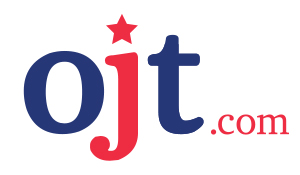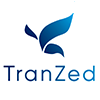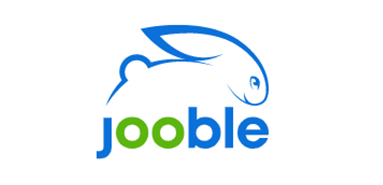Career and Technical Education
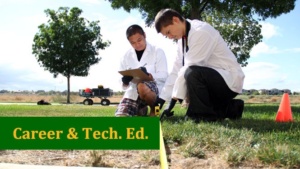
About Woodland Community College
On behalf of our students, faculty, support staff, and administrators, I want to welcome you to Woodland Community College. Whether you are attending our Woodland, Colusa County, or Lake County Campus, we are happy you have chosen our college to further your education. You are the reason we are all here and you will find that our professional support staff and faculty work hard to make sure you have a rewarding experience at our college.
Our goals remain the same; to offer high quality students services and academic programs that will make it easier to complete your educational and career goals. For that purpose we want to ensure that students have the proper student support services for a seamless matriculation process and access to life-long learning strategies that will serve as the foundation for further career exploration and academic options.
Woodland Community College offers many transfer degrees and certificate programs. Whether your educational goal is to earn an associate’s degree and transfer to a four year institution or to earn a specialized certificate, Woodland Community College has a program with your needs in mind.
Our college also has a variety of student activities and student organizations that offer an opportunity to expand your student experience outside of the classroom. I invite you to visit our website or visit our Student Services building to learn more about our campus life and opportunities
What is Accreditation?
Accreditation is the process for evaluating and assuring the quality of education used by the American higher education community. It is a uniquely American quality assurance process through which institutions collectively set standards for good practice, conduct peer-based evaluations of institutions, on a regular basis, confer accredited status on institutions, and make the results of accreditation review of institutions known to the public. Through accreditation, the higher education community shoulders the responsibility for monitoring the quality of the programs and services or member institutions. Agencies that develop and apply standards are called accrediting commissions. Accrediting commissions were created by a collective group that wished to engage in the quality review and assurance process, and those institutions were and are referred to as the member institutions of a commission.
Institutional Accreditation is public certification that institutions meet defined standards of quality and responsibility.
Woodland Community College is accredited by the Accrediting Commission for Community and Junior Colleges, Western Association of Schools and Colleges, 10 Commercial Blvd., Suite 204, Novato, CA 94949, (415) 506-0234, an institutional accrediting body recognized by the Council for Higher Education Accreditation and the U.S. Department of Education. Additional information about accreditation, including the filing of complaints against member institutions, can be found at: www.accjc.org
Questions or comments can be sent to the Woodland Community College Accreditation Liaison Officer, Kasey Gardner: kgardner@yccd.edu
Accredited Status
Woodland Community College is accredited by the Accrediting Commission for Community and Junior Colleges, Western Association of Schools and Colleges, 10 Commercial Blvd., Suite 204, Novato, CA 94949, (415) 506-0234, an institutional accrediting body recognized by the Council for Higher Education Accreditation and the U.S. Department of Education. Additional information about accreditation, including the filing of complaints against member institutions, can be found at: www.accjc.org . Students and members of the public who desire to file a formal complaint related to noncompliance with accreditation standards (http://www.accjc.org/complaint-policy
. Students and members of the public who desire to file a formal complaint related to noncompliance with accreditation standards (http://www.accjc.org/complaint-policy ) may contact the Accrediting Commission for Community and Junior Colleges (ACCJC) directly. The commission can be contacted at: Accrediting Commission for Community and Junior Colleges; Western Association of Schools and Colleges; 10 Commercial Boulevard, Suite 204; Novato, CA 94949; Telephone: (415) 506-0234; Fax: (415) 506-0238.
) may contact the Accrediting Commission for Community and Junior Colleges (ACCJC) directly. The commission can be contacted at: Accrediting Commission for Community and Junior Colleges; Western Association of Schools and Colleges; 10 Commercial Boulevard, Suite 204; Novato, CA 94949; Telephone: (415) 506-0234; Fax: (415) 506-0238.
Complaints Against Member Institutions
Students and members of the public who desire to file a formal complaint to the Commission about one of its member institutions should become familiar with the requirements for doing so prior to contacting the Commission. Read more…
Complaints Against the Commission
Individuals who wish to file a formal complaint to the Commission about the ACCJC should become familiar with the requirements for doing so prior to contacting the Commission. Read more…
Third-Party Comments to ACCJC
A third-party comment may be submitted to the Commission at any time as it relates to the compliance of a member institution with Eligibility Requirements, Accreditation Standards, or Commission policies. Such comment must be submitted in writing, signed, and accompanied by the affiliation, return address and telephone number of the correspondent. Commission staff will review all third-party comments to assess its applicability to Eligibility Requirements, Accreditation Standards, or Commission policies. Institutions will be provided with an opportunity to review applicable third-party comments.
Individuals who wish to make comments on the institutions that are undergoing review in the current semester and that are being considered by the Commission at its next meeting, should use the Third Party Comment Form and be sure to include their name, address, phone number, and email address. The comments must be received five weeks before the scheduled Commission meeting.
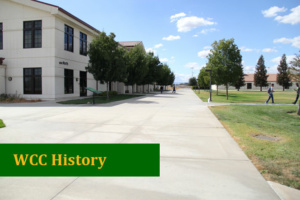
Our History
In the fall of 1975 Woodland offered courses in an outreach program. In 1981 the California Postsecondary Education Commission labeled Woodland as an official education center.
In 1990, Woodland Center (now Woodland Community College) relocated to its current 120 acres (49 ha) parcel of land. In 1999 Yuba Community College District notified its intent for Woodland Center to become a self-sufficient community college, the same year that a Child Development center was opened on campus. The next year the district received the approval from the State Chancellor’s office to begin Woodland Center’s process of being a comprehensive college.
The Lake County Campus has offered courses to Lake County citizens since 1972. The campus center began with the humble offering of a few courses at Konocti Harbor Inn. The campus now serves 1000 students in modern facilities in a lovely oak woodland campus in Clearlake, California.
Documents of Historical Significance:
1977 Needs Assessment and Feasibility Study for Woodland Center (pdf, 37mb)
Significance: Provides background information regarding the development of Woodland Community College (previously known as Woodland Center). This study recommended to the Board of Trustees of Yuba Community College District begin a process to obtain a permanent site for what would become Woodland Community College.
